Search
Remove Ads
Advertisement
Search Results

Article
Egyptian Afterlife - The Field of Reeds
The ancient Egyptians believed that life on earth was only one part of an eternal journey which ended, not in death, but in everlasting joy. When one's body failed, the soul did not die with it but continued on toward an afterlife where one...

Definition
The Negative Confession
The Negative Confession (also known as The Declaration of Innocence) is a list of 42 sins which the soul of the deceased can honestly say it has never committed when it stands in judgment in the afterlife. The soul would recite these in the...

Article
Ancient Egyptian Mortuary Rituals
Ever since European archaeologists began excavating in Egypt in the 18th and 19th centuries CE, the ancient culture has been largely associated with death. Even into the mid-20th century CE reputable scholars were still writing on the death-obsessed...
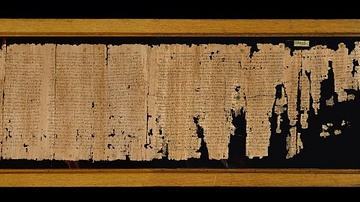
Article
The Tales of Prince Setna
Among the most engaging and influential works from Egyptian literature are the stories in the cycle known as Setna I and Setna II or The Tales of Prince Setna. These are fictional works from the Late Period of Ancient Egypt (525-332 BCE...
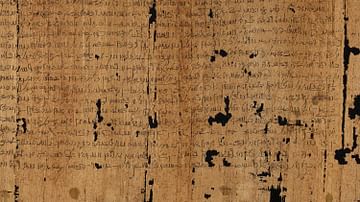
Article
Setna II: A Detailed Summary & Commentary
Setna II (also Setna Khaemaus and Si-Osire) is a work of ancient Egyptian literature from Roman Egypt (30 BCE - 646 CE) written in demotic script. It is part of a cycle of stories known as the Tales of Prince Setna featuring a character based...
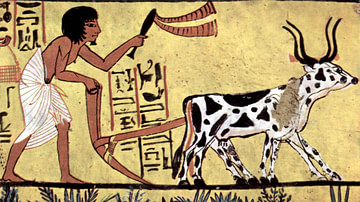
Article
Daily Life in Ancient Egypt
The popular view of life in ancient Egypt is often that it was a death-obsessed culture in which powerful pharaohs forced the people to labor at constructing pyramids and temples and, at an unspecified time, enslaved the Hebrews for this...

Collection
Writing in Ancient Egypt
Writing in ancient Egypt developed sometime prior to the Early Dynastic Period (c. 3150-2613 BCE) and came to be recognized as a gift of the god Thoth who empowered humanity through the written word. Writing preserved memory, honored the...
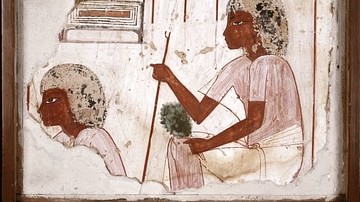
Article
Immortality of Writers in Ancient Egypt
For the ancient Egyptians, life on earth was only one part of an eternal journey which continued after death. One's purpose in life was to live in balance with one's self, family, community, and the gods. Any occupation in Egypt was considered...
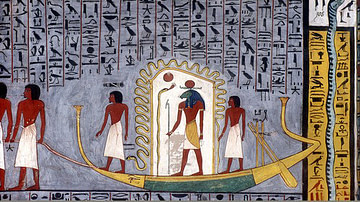
Article
The Pyramid Texts: Guide to the Afterlife
The Pyramid Texts are the oldest religious writings in the world and make up the principal funerary literature of ancient Egypt. They comprise the texts which were inscribed on the sarcophogi and walls of the pyramids at Saqqara in the 5th...

Article
Gods & Goddesses of Ancient Egypt - A Brief History
The land of ancient Egypt was alive with the spirit of the gods. The sun god Ra broke from the darkness every morning in his great boat, bringing the light, and many of the gods watched over the people by night as the stars. Osiris caused...